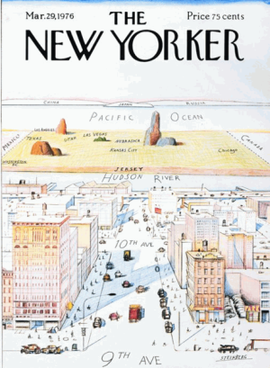After growing up in the staid American 80s and 90s, I have witnessed a litany of cataclysms in my adult life. First came 9/11, after that the never-ending Global War on Terror, then the Great Recession, and now a deadly pandemic compounded by the ongoing disaster that is the Trump administration. Time after time I look for comfort in art that can make sense of it all. There are plenty of well-known examples, but I keep coming back most often to Wassily Kandinsky’s Improvisation No. 30 (Cannons).
I first encountered this painting in the late 1990s, a quieter historical epoch when the president getting oral sex was the kind of thing that turned the country upside down. I had spent the first 22 years of my life in Nebraska, and had moved in 1998 to Chicago, that great metropolitan magnet of the Midwest. Thirsty for the kind of culture I craved but had been denied in my provincial, pre-internet upbringing, I made it a habit to go to the Art Institute on their free Tuesdays just about every week.
Over time certain paintings became my favorites, I would linger before them, feeling their power wash over me. Being in the presence of art that I had only seen in textbooks gave me a special kind of high, I could practically feel the vibrations coming off of the paint.
At the same time, I was taking an art history class on the year 1913, a fascinating and crucial moment in the development of modernism. For the first time I had the tools to actually interpret and historicize what I was looking at. In class I had read from the Blue Rider Almanac, a sort of German modernist manifesto from 1912. It invigorated me, and I developed a particular interest in Kandinsky, who was one of the principal members of the Blue Rider group. Whenever I went to the Art Institute, I would spend a lot of time with his Improvisation No. 30. It’s a small, square-sized painting that does not draw the same kind of crowds as the Van Goghs and Monets nearby, but it was my favorite.
From an art history perspective, the painting was a kind of missing link between Expressionism and Abstract art. There were wild splashes of color but also some representational elements, like the cannons in the bottom right corner that appeared to be blasting down outlines of buildings. There also appeared to be a crowd of people on the opposite side, perhaps implying some kind of mass uprising. Soon after this Kandinsky’s work would be completely abstract, but I found this more obscure hybrid intriguing.
Being obsessed with the cultural history of World War I at the time, I saw Kandinsky’s painting as a prophecy of the cataclysm that struck a year after he made it. That conflict took millions of lives, smashed empires, sparked revolutions, forever altered culture and society, and is the true beginning point of the 20th century. In the Blue Rider Almanac he and Franz Marc had both longed for a cultural rupture from the dehumanizing industrial world that would bring about new, more spiritual ways of being. When the war began some modern artists, including Marc, embraced it as a shake-up of a boring and predictable world. The reality ended up being much harsher, and Marc himself died in the war. Nevertheless, a true remaking of the world did in fact result, even if it was not the one Kandinsky had hoped for.
Living in relatively stable times and longing for an upheaval is a luxury we do not have anymore, but it is one I certainly indulged in back in late 1990s Chicago. The first upheaval came soon enough in 2001, complete with collapsing buildings. By that time I was living elsewhere, but the image of Kandinsky’s painting had been burned into my mind’s eye. I thought about it constantly, and what it was like to be living in a time when history was happening all around me, rather than something to be read about in books.
That sensation has had me in its grip since March, and has squeezed tighter since the Black Lives Matter protests started in May. It is far too easy in times like this to long for an idealized past as an escape. I have already reached an age where my peers will talk about how much better things were “back then.” That kind of nostalgia is a sickness in the middle-aged, and one I am laboring hard to avoid.
Improvisation No. 30 provides an inoculation. Kandinsky painted it looking forward to a shake-up and dreaming of the potential possibilities. Even if it did not take the shape he preferred, it’s still healthy to imagine what can be built after destruction. The cannons are firing and the walls are falling regardless, now is the time to imagine something better to take the place of the dead past. The world is never going back to what it was on March 1, 2020, and that’s a good thing.
[Editor's Note: I wrote this for a very specific call for essays that makes it hard to submit elsewhere after getting rejected.]




